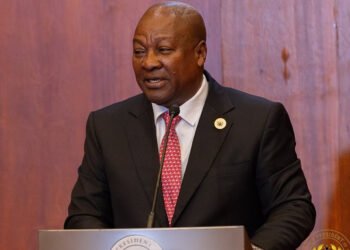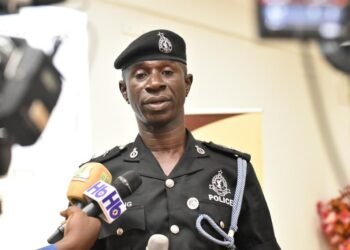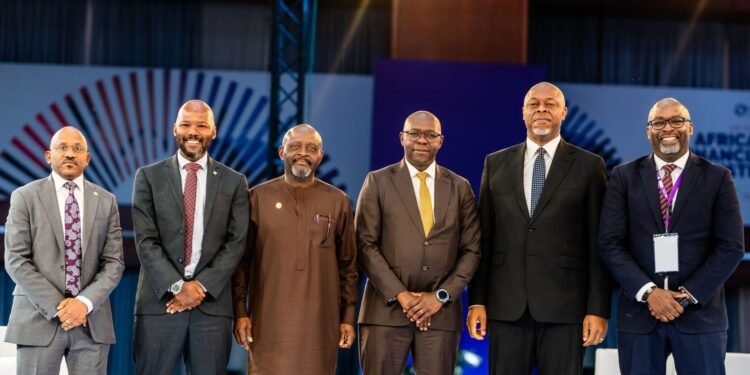Chief Justice Gertrude Araba Torkornoo’s request to President John Mahama to be furnished with copies of the petition for her removal has been described as “premature” by a legal expert and lecturer at the University of Cape Coast, Esq. Carruthers Tetteh.
He argued that the constitutional procedure for removing a Chief Justice does not mandate the president to notify her at this stage, making her request legally unfounded.
In an interview with Vaultz News, Esq. Tetteh explained that the 1992 Constitution mandates a structured process for removing a Chief Justice.
It begins with a petition to the President, who must consult the Council of State before forming a five-member investigative committee.
The President, upon receipt of the petition, would, in consultation with the Council of State, set up a committee, a five-member committee.
“Two of the members of the committee must be Supreme Court judges. The three other members must not be lawyers and members of the Council of State or Parliament.”
Esq. Carruthers Tetteh
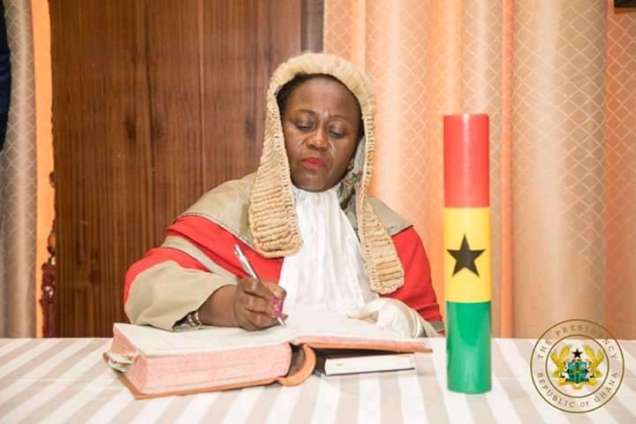
He noted that, however, a 2005 Supreme Court ruling clarified that the President must first assess whether the petition establishes a prima facie case.
If not, the process stops; otherwise, the committee is formed, allowing the Chief Justice to respond.
Against this backdrop, Esq. Tetteh maintained that the Chief Justice’s request for the petition at this preliminary stage is unnecessary.
“At this stage, the Chief Justice’s request is premature because the President may determine that there is no prima facie case, and in that case, the petition goes nowhere.
“If the process is terminated at that point, then what would have been the essence of giving her the petition beforehand?”
Esq. Carruthers Tetteh
Esq. Tetteh further clarified that the Constitution does not impose any obligation on the president to notify the Chief Justice before consulting the Council of State.

He stressed that there is no legal requirement for the president to involve her before making a determination. “Eventually, she would be notified when the committee is set up, and that is when she will have the chance to respond.”
He also questioned whether the Chief Justice’s response should even be directed at the President.
“Who is she responding to? Because, eventually, it is the committee that will sit on the matter, not the President. If she is given the petition now and the process does not proceed, it would have been an unnecessary exercise.”
Esq. Carruthers Tetteh
Accordingly, the legal expert highlighted the risks of establishing a precedent where a president willingly approves such a request.
He cautioned that a future president might choose to deny a similar request, potentially leading to allegations of bias and unfair treatment.
As such, he emphasized the need for caution, as inconsistent decisions could shape public perception negatively.
Judiciary’s Independence Not Undermined
On the broader implications for judicial independence, Esq. Carruthers Tetteh dismissed concerns that the process threatens the autonomy of the judiciary.
He argued that this provision has been part of the Constitution since 1992 and was followed under previous administrations without controversy.
“When this same procedure was triggered under former President Akufo-Addo, no one questioned judicial independence. Why are we raising these concerns now?”
Esq. Carruthers Tetteh
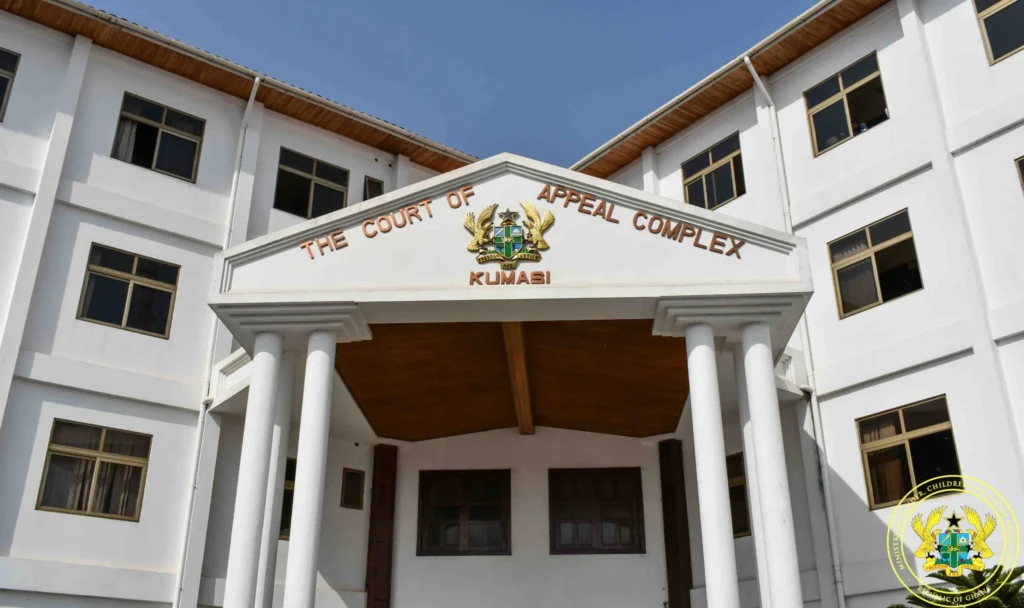
He further noted that the judiciary, like any other branch of government, is subject to accountability. “If a petition is filed and due process is followed, how does that undermine judicial independence?”
“The President is bound by the Constitution, just as the Chief Justice is. If she believes her rights have been violated, she can seek redress. That is how the rule of law works.”
Esq. Carruthers Tetteh
Esq. Tetteh stressed the importance of ensuring that the process is not misused while also managing its impact on public confidence in the judiciary.
He emphasized that while wrongdoing should not be overlooked for the sake of stability, issues must be addressed in a manner that preserves trust in the system.
Meanwhile, the controversy surrounding this petition has also sparked legal maneuvering, with the New Patriotic Party (NPP) filing for an interlocutory injunction.
Esq. Tetteh described this move as a common legal strategy to either delay or complicate the process.
“These are legal gymnastics. If the president is served with the application through the Attorney General, the process must pause until the application is addressed. This is normal procedure, and we should expect interesting legal battles ahead.”
Esq. Carruthers Tetteh
He also stated that the NPP’s writ, which alleges that the President did not follow due process in this matter, is legally flawed.
Accordingly, he emphasized that such claims should not be made without strong legal justification.
Another key issue that has surfaced is the apparent inconsistency in how a similar petition was handled in the past by the Chief Justice.
Some observers have pointed out that during the Nana Addo administration, when a petition was submitted for the removal of a Chief Justice, there was no demand for early access to the petition. Now, with a different administration, this request is being made.
Esq. Tetteh recognized these concerns but noted that various factors could explain Chief Justice Torkornoo’s change in approach. “The political climate may be different now, and perhaps she sees this petition as more serious.”
He pointed out that the timing of the request should not automatically be interpreted as a shift in personal stance, as evolving circumstances, legal considerations, or new developments could have influenced the decision to raise the issue at this particular moment.
Judicial Accountability vs. Stability
Beyond the legal considerations, the debate touches on a critical issue: whether the Chief Justice should be shielded from removal to preserve judicial stability or whether due process should be upheld regardless of potential repercussions.
Accordingly, Esq. Tetteh emphasized that while stability in the judiciary is important, it should never come at the expense of accountability.

He maintained that no position, no matter how high-ranking, should be beyond scrutiny, as transparency and adherence to legal procedures are essential for maintaining public trust in the judicial system.
“If the allegations in the petition have merit and the Chief Justice is found guilty, then retaining her in office would send the wrong message—that the judiciary is untouchable. That would be dangerous for our democracy.”
Esq. Carruthers Tetteh
At the same time, he expressed confidence that the process would not lead to such an outcome.
“I do not think we will get to that point. But no one should assume that a Chief Justice cannot be questioned simply for the sake of stability. The law must be allowed to take its course.”
Esq. Carruthers Tetteh
As this legal battle continues to unfold, attention remains firmly fixed on the Supreme Court, which holds the ultimate authority to determine whether due process has been followed or if constitutional breaches have occurred.
The court’s ruling will not only resolve the immediate controversy but also set a significant precedent for the interpretation and application of constitutional provisions in similar cases.
Regardless of the outcome, this case is poised to leave a lasting impact on Ghana’s legal and political framework, influencing future governance, judicial accountability, and the delicate balance of power among state institutions.
READ ALSO: UAW Welcomes Trump’s Car Tariffs






